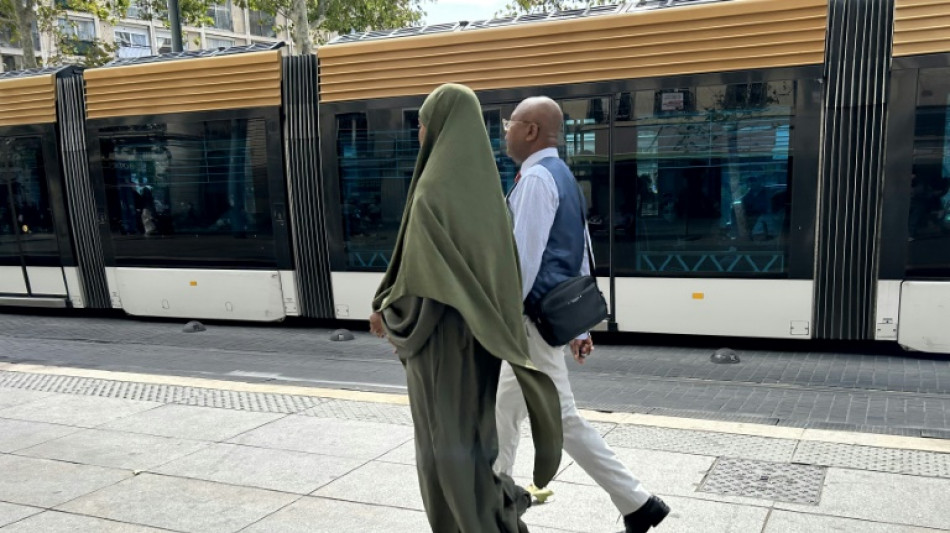
-
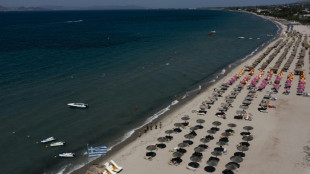 Greece set new tourism record in 2025
Greece set new tourism record in 2025
-
Zelensky says Ukraine unbroken after 4 years, but Russia vows to fight on
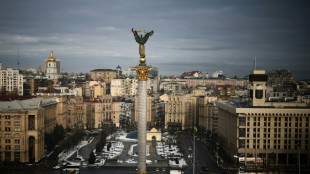
-
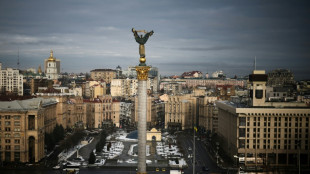 Zelenksy says Ukraine unbroken after 4 years, but Russia vows to fight on
Zelenksy says Ukraine unbroken after 4 years, but Russia vows to fight on
-
Snoop Dogg 'can't wait' for first Swansea visit

-
 Stocks fluctuate as traders assess AI fallout, tariffs
Stocks fluctuate as traders assess AI fallout, tariffs
-
Post-it maker 3M faces Belgian trial over 'forever' chemicals

-
 UK comedian Russell Brand pleads not guilty to new rape, assault charges
UK comedian Russell Brand pleads not guilty to new rape, assault charges
-
Duterte drew up 'death lists', boasted about murders: ICC prosecutor
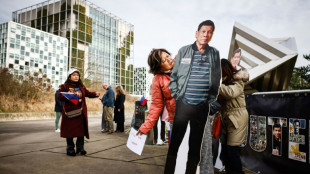
-
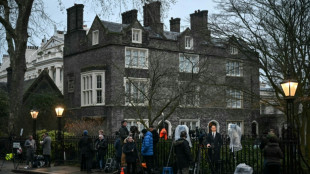 UK govt urged to release documents linked to ex-prince Andrew
UK govt urged to release documents linked to ex-prince Andrew
-
Rights group slams treatment of viral Japanese monkey

-
 Inside the bunker where Zelensky led response to Russian invasion
Inside the bunker where Zelensky led response to Russian invasion
-
France demands explanation from US envoy over 'surprise' no-show
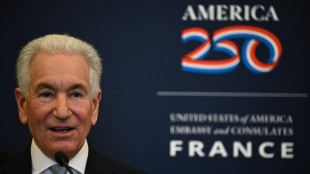
-
 Putin failed to achieve goals in Ukraine, Zelensky says on war anniversary
Putin failed to achieve goals in Ukraine, Zelensky says on war anniversary
-
China tightens Japanese trade restrictions as spat worsens
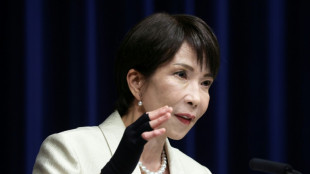
-
 Ukraine war exhibition opens at Berlin Nazi bunker museum
Ukraine war exhibition opens at Berlin Nazi bunker museum
-
Jihadist threat puts eastern Senegal on edge
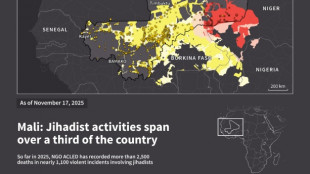
-
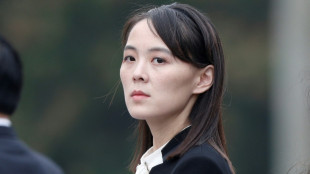 Kim Yo Jong: the powerful sister behind North Korea's supreme leader
Kim Yo Jong: the powerful sister behind North Korea's supreme leader
-
North Korea ruling party promotes Kim Jong Un's younger sister

-
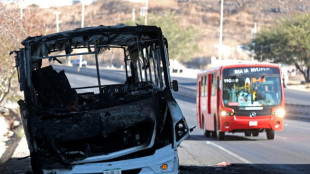 Mexico's Jalisco cautiously tries returning to normal after cartel violence
Mexico's Jalisco cautiously tries returning to normal after cartel violence
-
Mexico's violence-hit Guadalajara to host World Cup games
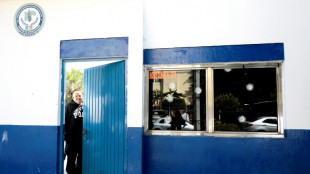
-
 Mourinho's Bernabeu homecoming upended by suspension, racism row
Mourinho's Bernabeu homecoming upended by suspension, racism row
-
China targets Japanese companies over military ties
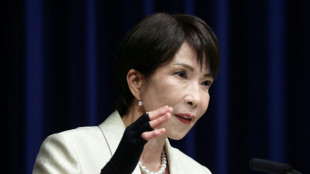
-
 Griezmann in talks to join MLS side Orlando City: source
Griezmann in talks to join MLS side Orlando City: source
-
France to revoke US envoy's govt access after summons no-show
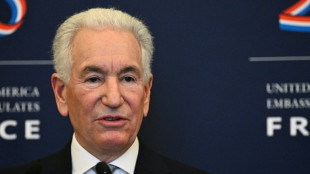
-
 Spurs overpower Pistons in clash of NBA's form teams
Spurs overpower Pistons in clash of NBA's form teams
-
Inoue to fight Nakatani in Tokyo in May: reports

-
 Canada PM to push trade, rebuild fractured ties in India trip
Canada PM to push trade, rebuild fractured ties in India trip
-
Asian markets mixed as traders weigh AI and tariffs outlook

-
 Votes may 'melt like snow': Reform, Greens eye Labour UK bastion
Votes may 'melt like snow': Reform, Greens eye Labour UK bastion
-
Venezuela says exiles welcome to return following mass amnesty

-
 Australia buys parts for future AUKUS sub reactor
Australia buys parts for future AUKUS sub reactor
-
Ukraine marks four years since Russian invasion

-
 Brazil court to try politicians over hit on black councilwoman
Brazil court to try politicians over hit on black councilwoman
-
Interim president says Venezuelans welcome to return after amnesty law

-
 Man kills police officer in Moscow train station blast
Man kills police officer in Moscow train station blast
-
Despite drop in 2025, Russian oil exports exceed pre-war volumes: report

-
 ARIA Cybersecurity Announces Major Oil Refiner Deploys AZT PROTECT(TM)
ARIA Cybersecurity Announces Major Oil Refiner Deploys AZT PROTECT(TM)
-
Greene Concepts Announces Major Be Water Expansion in Walmart Stores Across the Southeast

-
 Fuse Battery Announces Amended Subscription Receipt Financing Details
Fuse Battery Announces Amended Subscription Receipt Financing Details
-
Lightwave Logic, Inc. Provides Update on Commercial Pipeline and Announces Timing of Fourth Quarter and Full Year 2025 Earnings Call

-
 Unlearn Advances Huntington's Disease AI Modeling Through Access to CHDI Foundation Data
Unlearn Advances Huntington's Disease AI Modeling Through Access to CHDI Foundation Data
-
Protagonist Therapeutics to Participate in Multiple Investment Bank Conferences in March 2026

-
 Specificity (OTCID:SPTY) to Present on the Emerging Growth Conference on February 26th, 2026.
Specificity (OTCID:SPTY) to Present on the Emerging Growth Conference on February 26th, 2026.
-
Havertys Reports Operating Results for Fourth Quarter 2025

-
 Viemed Healthcare Announces Year End 2025 Earnings Conference Call Details
Viemed Healthcare Announces Year End 2025 Earnings Conference Call Details
-
Galway Metals Drilling Intersects 9.0 g/t Gold Over 6.0m Beginning 15.0m from Surface at Southwest Deposit

-
 PeanutButterJelly Expands Affiliate Marketplace From 15 to 40 Affiliate Merchants; Website Sessions Rise 70%; Launches Conversion and Growth Optimization Plan
PeanutButterJelly Expands Affiliate Marketplace From 15 to 40 Affiliate Merchants; Website Sessions Rise 70%; Launches Conversion and Growth Optimization Plan
-
Digipower X Announces Uplisting to Cboe Canada

-
 Jaguar Mining Provides Update on Geologic Interpretation at the Chamé Gold Exploration Target, Brazil
Jaguar Mining Provides Update on Geologic Interpretation at the Chamé Gold Exploration Target, Brazil
-
Electrovaya Receives $10.5 Million P.O from Fortune 500 Customer


Court backs French abaya Muslim dress ban in schools
France's top administrative court on Thursday upheld a government ban on traditional over-garments worn by some Muslim women in schools and rejected complaints it was discriminatory and could incite hatred.
President Emmanuel Macron's government announced last month it was banning the abaya in schools as it broke the rules on secularism in education.
Muslim headscarves have already banned on the ground that they constitute a display of religious affiliation.
An association representing Muslims filed a motion with the State Council, France's highest court for complaints against state authorities, for an injunction against the ban on the abaya and the qamis, its equivalent dress for men.
The association said the ban was discriminatory and could incite hatred against Muslims, as well as racial profiling.
But after examining the motion -- filed by the Action for the Rights of Muslims (ADM) -- for two days, the State Council rejected the arguments.
It said wearing the abaya "follows the logic of religious affirmation", adding that the decision was based on French law which did not allow anyone wearing visible signs of any religious affiliation in schools.
- 'No serious harm' -
The ban by the government did not, it said, cause "serious or obviously illegal harm to the respect for personal lives, freedom of religion, the right to eduation, the well-being of children or the principle of non-discrimination".
Ahead of the ruling, France's Council of the Muslim Faith (CFCM), established to represent Muslims before the government, had warned that banning the abaya could create "an elevated risk of discrimination" and said it was considering putting its own complaint before the State Council.
The absence of "a clear definition of this garment creates vagueness and legal uncertainty", it said.
ADM's lawyer, Vincent Brengarth, argued during the court hearing that the abaya should be considered a traditional garment, not a religious one.
He also accused the government of seeking political advantage with the ban.
ADM president Sihem Zine said the rule was "sexist" because it singles out girls and "targets Arabs".
But the education ministry said the abaya made its wearers "immediately recognisable as belonging to the Muslim religion", and therefore ran counter to France's secular culture.
French schools sent dozens of girls home for refusing to remove their abayas -- a shoulder-to-toe over-garment -- on the first day of the school year on Monday.
Nearly 300 schoolgirls defied the ban, Education Minister Gabriel Attal said.
Most agreed to change garments but 67 refused and were sent home, he said.
In 2016 the State Council overturned a ban in a French Riviera resort against the burkini, saying it failed to see any threat to public order from the long bathing suit worn by some Muslim women.
Around 10 percent of France's 67 million inhabitants are Muslim, according to official estimates.
Most have origins in northern African countries Algeria, Morocco and Tunisia, which were French colonies until the second half of the 20th century.
burs/jh/ach
L.Durand--AMWN



